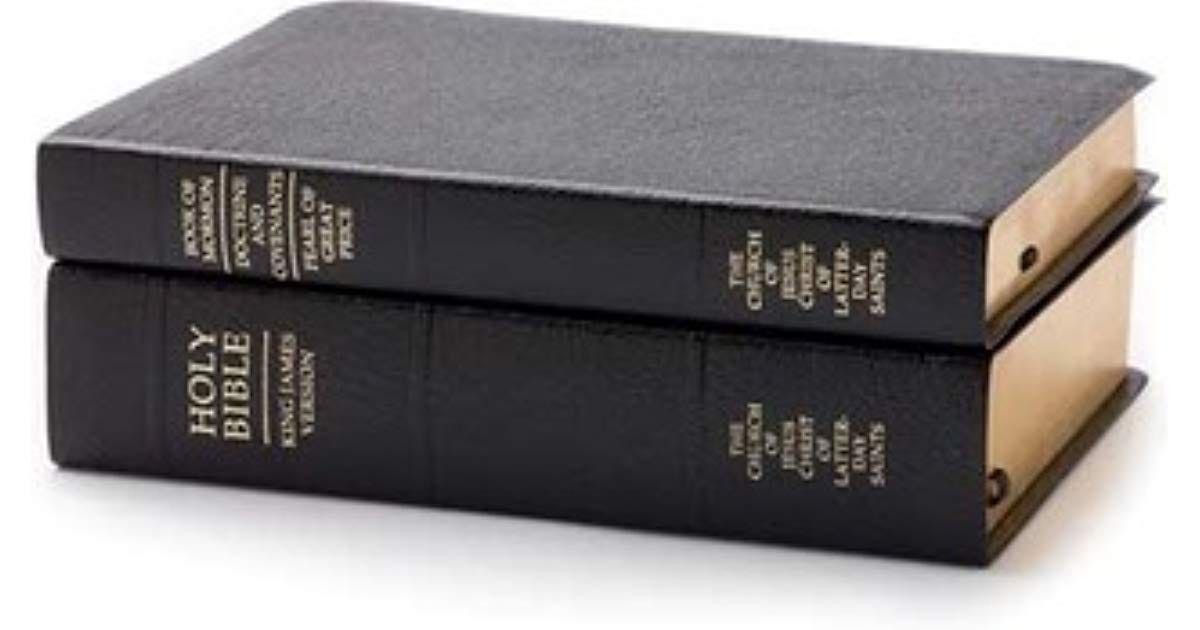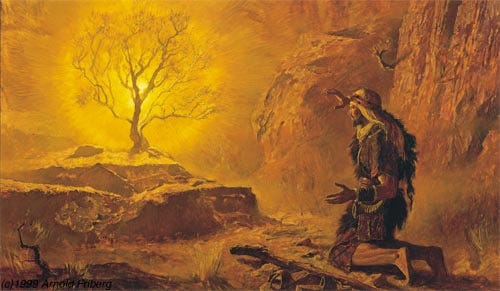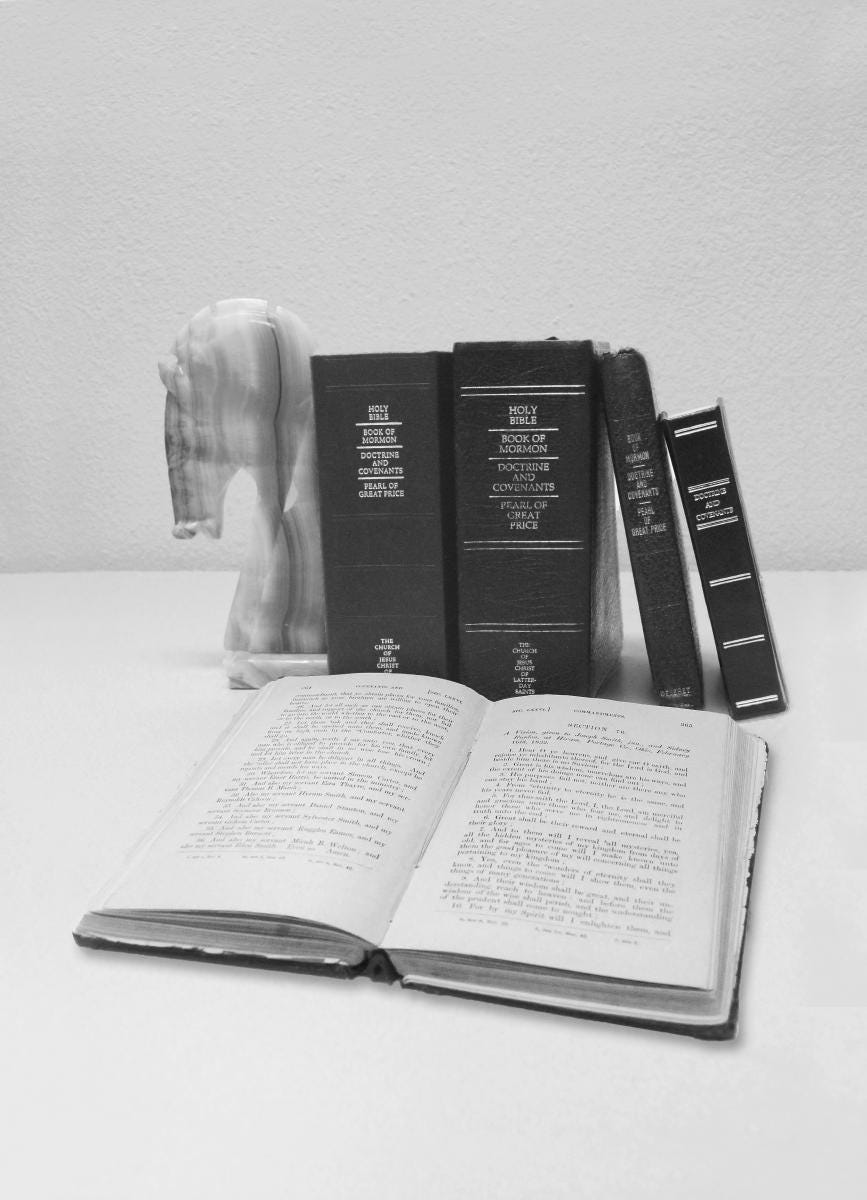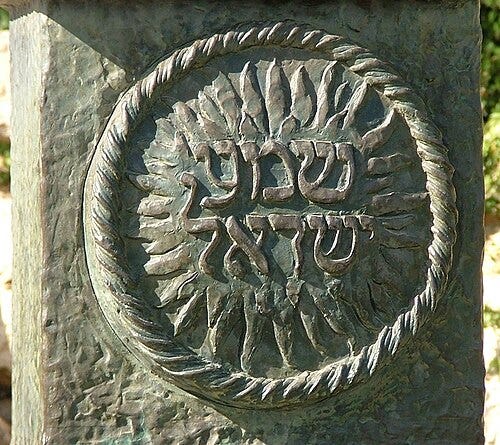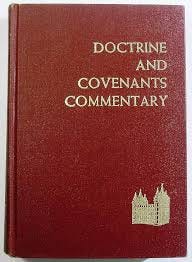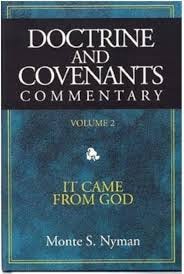To Them Will I Reveal All Mysteries
Reflections on Doctrine and Covenants Section 76 (Part 1)
In a previous post I outlined the historical background for Doctrine and Covenants Section 76. In this post, we will begin to examine and appreciate the revelation itself.
Before we begin, however, I would like to take a closer look at the Prophet Joseph Smith’s introduction to this section:
“Upon my return from Amherst conference, I resumed the translation of the Scriptures. From sundry revelations which had been received, it was apparent that many important points touching the salvation of man had been taken from the Bible, or lost before it was compiled. It appeared self-evident from what truths were left, that if God rewarded every one according to the deeds done in the body the term ‘Heaven,’ as intended for the Saints’ eternal home, must include more kingdoms than one. Accordingly, … while translating St. John’s Gospel, myself and Elder Rigdon saw the following vision.”
Notice that this revelation in D&C 76 was given after much preparation and while the Prophet was engaged in the work of translation. The translation of the Book of Mormon and the translation of the Bible became a springboard for further revelation. Joseph Smith and Sidney Rigdon noticed that the Bible was imperfect and incomplete. They knew this by experience and through sundry revelations. These are just a few passages of scripture that may remind us why Joseph Smith and Sidney Rigdon knew that many important points touching the salvation of man had been taken from the Bible, or lost before it was compiled:
Some time in the second year after our removal to Manchester, there was in the place where we lived an unusual excitement on the subject of religion. It commenced with the Methodists, but soon became general among all the sects in that region of country. Indeed, the whole district of country seemed affected by it, and great multitudes united themselves to the different religious parties, which created no small stir and division amongst the people, some crying, “Lo, here!” and others, “Lo, there!” Some were contending for the Methodist faith, some for the Presbyterian, and some for the Baptist.
For, notwithstanding the great love which the converts to these different faiths expressed at the time of their conversion, and the great zeal manifested by the respective clergy, who were active in getting up and promoting this extraordinary scene of religious feeling, in order to have everybody converted, as they were pleased to call it, let them join what sect they pleased; yet when the converts began to file off, some to one party and some to another, it was seen that the seemingly good feelings of both the priests and the converts were more pretended than real; for a scene of great confusion and bad feeling ensued—priest contending against priest, and convert against convert; so that all their good feelings one for another, if they ever had any, were entirely lost in a strife of words and a contest about opinions.
I was at this time in my fifteenth year. My father’s family was proselyted to the Presbyterian faith, and four of them joined that church, namely, my mother, Lucy; my brothers Hyrum and Samuel Harrison; and my sister Sophronia.
During this time of great excitement my mind was called up to serious reflection and great uneasiness; but though my feelings were deep and often poignant, still I kept myself aloof from all these parties, though I attended their several meetings as often as occasion would permit. In process of time my mind became somewhat partial to the Methodist sect, and I felt some desire to be united with them; but so great were the confusion and strife among the different denominations, that it was impossible for a person young as I was, and so unacquainted with men and things, to come to any certain conclusion who was right and who was wrong.
My mind at times was greatly excited, the cry and tumult were so great and incessant. The Presbyterians were most decided against the Baptists and Methodists, and used all the powers of both reason and sophistry to prove their errors, or, at least, to make the people think they were in error. On the other hand, the Baptists and Methodists in their turn were equally zealous in endeavoring to establish their own tenets and disprove all others.
In the midst of this war of words and tumult of opinions, I often said to myself: What is to be done? Who of all these parties are right; or, are they all wrong together? If any one of them be right, which is it, and how shall I know it?
While I was laboring under the extreme difficulties caused by the contests of these parties of religionists, I was one day reading the Epistle of James, first chapter and fifth verse, which reads: If any of you lack wisdom, let him ask of God, that giveth to all men liberally, and upbraideth not; and it shall be given him.
Never did any passage of scripture come with more power to the heart of man than this did at this time to mine. It seemed to enter with great force into every feeling of my heart. I reflected on it again and again, knowing that if any person needed wisdom from God, I did; for how to act I did not know, and unless I could get more wisdom than I then had, I would never know; for the teachers of religion of the different sects understood the same passages of scripture so differently as to destroy all confidence in settling the question by an appeal to the Bible. (JS-History 1:5-12)
and,
And it came to pass that I, Nephi, beheld that they did prosper in the land; and I beheld a book, and it was carried forth among them.
And the angel said unto me: Knowest thou the meaning of the book?
And I said unto him: I know not.
And he said: Behold it proceedeth out of the mouth of a Jew. And I, Nephi, beheld it; and he said unto me: The book that thou beholdest is a record of the Jews, which contains the covenants of the Lord, which he hath made unto the house of Israel; and it also containeth many of the prophecies of the holy prophets; and it is a record like unto the engravings which are upon the plates of brass, save there are not so many; nevertheless, they contain the covenants of the Lord, which he hath made unto the house of Israel; wherefore, they are of great worth unto the Gentiles.
And the angel of the Lord said unto me: Thou hast beheld that the book proceeded forth from the mouth of a Jew; and when it proceeded forth from the mouth of a Jew it contained the fulness of the gospel of the Lord, of whom the twelve apostles bear record; and they bear record according to the truth which is in the Lamb of God.
Wherefore, these things go forth from the Jews in purity unto the Gentiles, according to the truth which is in God.
And after they go forth by the hand of the twelve apostles of the Lamb, from the Jews unto the Gentiles, thou seest the formation of that great and abominable church, which is most abominable above all other churches; for behold, they have taken away from the gospel of the Lamb many parts which are plain and most precious; and also many covenants of the Lord have they taken away.
And all this have they done that they might pervert the right ways of the Lord, that they might blind the eyes and harden the hearts of the children of men.
Wherefore, thou seest that after the book hath gone forth through the hands of the great and abominable church, that there are many plain and precious things taken away from the book, which is the book of the Lamb of God.
And after these plain and precious things were taken away it goeth forth unto all the nations of the Gentiles; and after it goeth forth unto all the nations of the Gentiles, yea, even across the many waters which thou hast seen with the Gentiles which have gone forth out of captivity, thou seest—because of the many plain and precious things which have been taken out of the book, which were plain unto the understanding of the children of men, according to the plainness which is in the Lamb of God—because of these things which are taken away out of the gospel of the Lamb, an exceedingly great many do stumble, yea, insomuch that Satan hath great power over them. (1 Nephi 13:20-29)
and,
Wherefore, the fruit of thy loins shall write; and the fruit of the loins of Judah shall write; and that which shall be written by the fruit of thy loins, and also that which shall be written by the fruit of the loins of Judah, shall grow together, unto the confounding of false doctrines and laying down of contentions, and establishing peace among the fruit of thy loins, and bringing them to the knowledge of their fathers in the latter days, and also to the knowledge of my covenants, saith the Lord. (2 Nephi 3:12)
and,
And because my words shall hiss forth—many of the Gentiles shall say: A Bible! A Bible! We have got a Bible, and there cannot be any more Bible.
But thus saith the Lord God: O fools, they shall have a Bible; and it shall proceed forth from the Jews, mine ancient covenant people. And what thank they the Jews for the Bible which they receive from them? Yea, what do the Gentiles mean? Do they remember the travails, and the labors, and the pains of the Jews, and their diligence unto me, in bringing forth salvation unto the Gentiles?
O ye Gentiles, have ye remembered the Jews, mine ancient covenant people? Nay; but ye have cursed them, and have hated them, and have not sought to recover them. But behold, I will return all these things upon your own heads; for I the Lord have not forgotten my people.
Thou fool, that shall say: A Bible, we have got a Bible, and we need no more Bible. Have ye obtained a Bible save it were by the Jews?
Know ye not that there are more nations than one? Know ye not that I, the Lord your God, have created all men, and that I remember those who are upon the isles of the sea; and that I rule in the heavens above and in the earth beneath; and I bring forth my word unto the children of men, yea, even upon all the nations of the earth?
Wherefore murmur ye, because that ye shall receive more of my word? Know ye not that the testimony of two nations is a witness unto you that I am God, that I remember one nation like unto another? Wherefore, I speak the same words unto one nation like unto another. And when the two nations shall run together the testimony of the two nations shall run together also.
And I do this that I may prove unto many that I am the same yesterday, today, and forever; and that I speak forth my words according to mine own pleasure. And because that I have spoken one word ye need not suppose that I cannot speak another; for my work is not yet finished; neither shall it be until the end of man, neither from that time henceforth and forever.
Wherefore, because that ye have a Bible ye need not suppose that it contains all my words; neither need ye suppose that I have not caused more to be written. (2 Nephi 29:3-12)
These are just a few of the sundry revelations that the Prophet Joseph Smith had received and to which the Church had access when the vision that is recorded in D&C 76 was received. What was taken from the Bible? What was lost before it was compiled? What truths were left? Why did the great and abominable church take away plain and precious parts, and many covenants of the Lord, from the Bible?
Nephi informs us that the great and abominable church took away many plain and precious parts from the Bible in order to pervert the right ways of the Lord, and to blind the eyes and harden the hearts of the children of men. In his introduction to this section, Joseph Smith informs us that many important points touching the salvation of man had been taken from the Bible, or lost before it was compiled. These are just a few reasons why the Eighth Article of Faith and the Ninth Article of Faith are so important:
We believe the Bible to be the word of God as far as it is translated correctly; we also believe the Book of Mormon to be the word of God. (Articles of Faith 1:8)
and
We believe all that God has revealed, all that He does now reveal, and we believe that He will yet reveal many great and important things pertaining to the Kingdom of God. (Articles of Faith 1:9)
Too many people today are still confused about the Bible. Too many people consider that the Bible contains everything that the Lord has spoken or will speak, and that it is inerrant or perfect. But isn’t it obvious by now that the Bible is the word of God, only insofar as it is translated correctly, and inasmuch as it is correctly interpreted? Isn’t obvious by now, even two hundred years after the Second Great Awakening, that teachers of religion in different sects or denominations understand the same passages of scripture so differently as to destroy all confidence in settling the question by an appeal to the Bible?
The war of words and tumult of opinions continues, but there is much more that has yet to be revealed. God still speaks:
And God spake unto Moses, saying: Behold, I am the Lord God Almighty, and Endless is my name; for I am without beginning of days or end of years; and is not this endless?
And, behold, thou art my son; wherefore look, and I will show thee the workmanship of mine hands; but not all, for my works are without end, and also my words, for they never cease. (Moses 1:3-4)
God’s works are without end, and his words are without end. The Bible is the word of God as far as it is translated correctly. The Book of Mormon is the word of God. The Doctrine and Covenants is the word of God. We believe these things and all things that God has already revealed. We believe all that He now reveals. We also believe that God will yet reveal many great and important things pertaining to the Kingdom of God. One of the things that God has already revealed is the account of Joseph Smith’s and Sidney Rigdon’s vision in D&C 76, which vision was prompted by the Prophet’s translation of John 5:29:
And shall come forth; they that have done good, unto the resurrection of life; and they that have done evil, unto the resurrection of damnation. (John 5:29)
As Joseph Smith was translating this passage, he reflected on the things that had been taken or lost from the Bible, and the common sense question arose in his mind: If God rewards every one according to the deeds done in the body, then doesn’t the term “Heaven” include more kingdoms than one? In other words, aren’t there gradations in Heaven? The facile Christian dogmas of Heaven and hell make no sense, even in the light of natural reason or common sense. Obviously there are gradations of righteousness and wickedness. It makes no sense, therefore, that all will be rewarded or punished in the same way in the life to come. Furthermore, as creative and as interesting as Dante’s Divine Comedy is, it is also fiction. What is the truth, therefore, about Heaven and hell? The answer is found in this section:
Hear, O ye heavens, and give ear, O earth, and rejoice ye inhabitants thereof, for the Lord is God, and beside him there is no Savior.
Great is his wisdom, marvelous are his ways, and the extent of his doings none can find out.
His purposes fail not, neither are there any who can stay his hand.
From eternity to eternity he is the same, and his years never fail.
For thus saith the Lord—I, the Lord, am merciful and gracious unto those who fear me, and delight to honor those who serve me in righteousness and in truth unto the end.
Great shall be their reward and eternal shall be their glory.
And to them will I reveal all mysteries, yea, all the hidden mysteries of my kingdom from days of old, and for ages to come, will I make known unto them the good pleasure of my will concerning all things pertaining to my kingdom.
Yea, even the wonders of eternity shall they know, and things to come will I show them, even the things of many generations.
And their wisdom shall be great, and their understanding reach to heaven; and before them the wisdom of the wise shall perish, and the understanding of the prudent shall come to naught.
For by my Spirit will I enlighten them, and by my power will I make known unto them the secrets of my will—yea, even those things which eye has not seen, nor ear heard, nor yet entered into the heart of man. (D&C 76:1-10)
I LOVE these verses.
I LOVE this promise.
The Lord can do His own work.
He can and will do wonders.
I feel to exclaim along with the Pslamist: “O God, who is like unto thee!” (Psalm 71:19) or “Who is like unto the Lord our God?” (Psalm 113:5)
The answer?
Fear ye not, neither be afraid: have not I told thee from that time, and have declared it? ye are even my witnesses. Is there a God beside me? yea, there is no God; I know not any. (Isaiah 44:8)
and,
Remember the former things of old: for I am God, and there is none else; I am God, and there is none like me (Isaiah 46:9)
and,
Wherefore thou art great, O Lord God: for there is none like thee, neither is there any God beside thee, according to all that we have heard with our ears. (2 Samuel 7:22)
The answers from the Old Testament are echoed in the Lord’s introduction to D&C 76. As in many of the revelations in the Doctrine and Covenants, the Lord doesn’t merely reveal answers to the questions of the Saints, He reveals answers to the questions they should have asked, or answers about Himself, His own character, His attributes, and His ways. Jesus Christ speaks in these verses, just as He, Jehovah, spoke to His people in ancient times.
Notice how this section begins with the word “hear.” This reminds me of what has come to be known as the Shema, or the prayer that encapsulates the essence of Judaism:
Hear, O Israel: The Lord our God is one Lord:
And thou shalt love the Lord thy God with all thine heart, and with all thy soul, and with all thy might. (Deuteronomy 6:4-5)
However, in this section, the Lord doesn’t just speak to Israel. He speaks to the heavens and the earth, and the inhabitants thereof. He gives us reason to rejoice because He, the Lord, is God, and because beside him there is no Savior. Joseph Smith and Sidney Rigdon had questions about the gradations of glory in heaven and rewards in the hereafter, and the Lord was ready to answer them. But, as is often the case in scripture, the Lord first responded by teaching them, and us, about His own character, His attributes, and His ways.
His ways are marvelous. His wisdom is great. No one can discover the extent of His doings. Think of that. In the Book of Mormon, Nephi’s brother Jacob put it this way:
Behold, great and marvelous are the works of the Lord. How unsearchable are the depths of the mysteries of him; and it is impossible that man should find out all his ways. And no man knoweth of his ways save it be revealed unto him; wherefore, brethren, despise not the revelations of God. (Jacob 4:8)
The Lord’s purposes never fail. No one can stay his hand, or in other words, no one can stop, delay, restrain, hinder, or obstruct Him or His work. He is Eternal. He is merciful. He is gracious. He delights to honor those who serve Him in righteousness and in truth unto the end.
After teaching us about His own character, His attributes, and His ways, the Lord promises to bless those who fear (reverence and respect) and serve Him with great blessings. What blessings does the Lord have in store for those who fear and serve Him? The Lord promises to bless us with great reward, eternal glory, the revelation of all mysteries, the revelation of all the hidden mysteries of His kingdom from days of old, and for ages to come, the good pleasure of His will concerning all things pertaining to His kingdom, the wonders of eternity, things to come, the things of many generations, great wisdom, and understanding that reaches to heaven. I especially love the promised blessing that before those who fear and serve the Lord in righteousness and in truth, the wisdom of the wise shall perish, and the understanding of the prudent shall come to naught.
How will the Lord bestow these blessings? Through His Spirit and by His power. If we fear and serve the Lord in righteousness and in truth, He will enlighten us by His Spirit and make known unto us the secrets of His will by His power. These blessings of enlightenment and revelation will consist of things which the eye has not seen, the ear has not heard, and which have not yet entered into the heart of man. Isaiah, Paul, and Mormon described such blessings in a similar way:
Isaiah:
For since the beginning of the world men have not heard, nor perceived by the ear, neither hath the eye seen, O God, beside thee, what he hath prepared for him that waiteth for him. (Isaiah 64:4)
Paul:
But as it is written, Eye hath not seen, nor ear heard, neither have entered into the heart of man, the things which God hath prepared for them that love him. (1 Cor. 2:9)
Mormon:
And after this manner do they bear record: The eye hath never seen, neither hath the ear heard, before, so great and marvelous things as we saw and heard Jesus speak unto the Father;
And no tongue can speak, neither can there be written by any man, neither can the hearts of men conceive so great and marvelous things as we both saw and heard Jesus speak; and no one can conceive of the joy which filled our souls at the time we heard him pray for us unto the Father. (3 Nephi 17:16-17)
This is Smith’s and Sjodahl’s commentary on the introductory verses of D&C 76:
The Introduction
Hear, O ye heavens, and give ear, O earth] Here is a Revelation intended for those in heaven as well as on Earth. Spirits beyond the veil must receive their information through the prophets of the Lord. They are as anxious to learn what God reveals to man as we are. (Comp. Dan. 8:13; I. Pet. 1:12).
The Lord is God] There is an all-sufficient reason why all should listen to this Revelation. It is the Lord that speaks; it is Jehovah, and He is God. “Know that Jehovah is God; He it is that made us, and we are His; His people and the sheep of His pasture” (Ps. 100:3). He made Israel of old to be a people for Himself (Deut. 32:6, 15). He gathered, and is still gathering, His Saints, and He owns them as His people. He is God. He is also the Redeemer, and besides Him there is no Savior.
Savior] Deliverer. The expression is used by Isaiah (43:3, 11) where the Lord promises the redemption of Israel; “I gave Egypt for thy ransom, Ethiopia, and Seba for thee.” In the same way He is the Savior, the Redeemer, of His latter-day Zion. There is none besides Him. He will surely “ransom” His inheritance in due time.
The world has almost forgotten that Jehovah, our Lord and Savior, Jesus Christ, is God. When they think of God, they endeavor to perceive either an imperceptible Being without body and without direct influence on the events of history; or a Thor hurling his flashing, murderous hammer in every direction; or an angry judge opening dungeons and ordering tortures, for His own glory. It is high time the world should hear again that Christ is God, and learn to worship Him who is revealed in Christ Jesus. The only true idea we have of God is the one we can obtain by seeing Him as revealed in His Son. Hence this important Revelation to which the attention of all the world is directed. The Lord Jesus Christ, is God.
Great is his wisdom] In Him “are hid all the treasures of wisdom and knowledge” (Col. 2:3). He is the “wisdom of God” (I. Cor. 1:24). World-wisdom, or philosophy, such as that in which the Greek masters of St. Paul’s day gloried, was “foolishness” in the sight of God. The gospel, in which Jesus Christ is the central figure, is God’s wisdom, though men deem it foolish.
Marvelous are his ways] See Isaiah 29:14, where the Prophet predicts the destruction of the wisdom of the wise men, and the concealment of their understanding, and gives the assurance that the Lord will “do a marvelous work” among the people. This was literally fulfilled when the Prophet Joseph was called to lay the foundations of the Church in this dispensation. Again and again the Lord declared, through the Prophet, “Now behold, a marvelous work is about to come forth” (Doctrine and Covenants, Secs. 4:1, 11:1; 18:44). This work far surpassed all human conceptions and calculations.
His purposes fail not] We can do very little; God can do whatever He wills. “Ah Lord God! behold, thou hast made the heaven and the earth by thy great power and stretched-out arm; and there is nothing too hard for thee” (Jer. 32:17). He is omnipotent; not in the sense that He calls forth something out of nothing, or that He deprives any of His children of their free agency, but in the sense that He has unlimited resources at His supreme command, and innumerable means whereby to accomplish His purposes.
From eternity to eternity he is the same] He is immutable, because His wisdom is infinite. His plans and purposes are perfect in conception. “The counsel of the Lord standeth for ever; the thoughts of his heart to all generations” (Psalm 33:11). Truth is immutable. It can never change. What is true today has always been true, and will always remain true. The gospel continues the same from eternity, because it is truth.
His years never fail] Never come to an end. There will never be a last year of His existence.
Merciful and gracious] Mercy is kindness exercised toward those who are unfortunate and miserable. Grace is love, or benevolence, extended toward those who have not earned it. In both are included pity, forbearance, gentleness, and compassion. In the proper government of the family the justice of the parent is always tempered with mercy. In the same way, God, in His dealings with His children, is both merciful and gracious. “Like as a father pitieth his children, so the Lord pitieth them that fear Him” (Psalm 103:13). He saves His repentant children. “That in the ages to come he might show the exceeding riches of his grace in his kindness toward us, through Christ Jesus (Ephesians 2:7).
In the Gospels, several occasions are noted on which our Savior manifested His compassion. When He saw the scattered, fainting multitude, without shepherd to take care of them, He was “moved with compassion” (Matt. 9:36, 14:14). He was full of compassion when He met lepers (Mark 1:41), blind (Matt. 20:34); mourners (Luke 7:13), and when He contemplated the fate of Jerusalem in the hands of blind leaders, in rebellion against God (Luke 19:41).
Honor those who serve me] As He is merciful and gracious to those who fear Him, so He takes delight in honoring those who serve Him in righteousness and truth to the end. Note the difference between these two classes - those that fear Him, and those that serve Him.
-
Will I reveal all mysteries] See Sec. 28:7. One of the rewards promised to God’s faithful servants is revelations of the mysteries of the kingdom of God. The Lord will teach them all that pertains to that kingdom, in order that they may be qualified as citizens, and take part in His government. He will teach them to be efficient legislators, executives, judges, diplomats, etc. in the kingdom.
The wonders of eternity] The history of the past and events yet to come are included in this curriculum. Through the Spirit of God, His faithful servants will have the past, present, and future opened to their view.
-
By my Spirit will I enlighten them] If we have the Spirit of God, we are, to that extent, part of the Deity, and partake of the knowledge and wisdom which God has, “For the Spirit searcheth all things, yea, the deep things of God” (I. Cor. 2:10). Through the Spirit the knowledge of God is communicated to man as readily as a Marconigram is sent from one place to another. Knowledge thus communicated from God to man, we call revelation. (pp. 444-446)
What on earth is a Marconigram? Apparently it is a message sent via radio.
I enjoy and appreciate Smith’s and Sjodahl’s commentary very much, and I agree with much of what they write. I especially enjoy and appreciate their testimonies of Jesus Christ and His Gospel. Perhaps there are some people who think of God as Thor hurling hammers, but I admit that I find that observation funny. I would also draw a distinction between “world wisdom” and philosophy. I don’t think that the Greek masters of Paul’s day are responsible for all of the foolishness in the world, although I understand what Smith and Sjodahl mean. As for the Lord’s marvelous work and wonder, I agree with Smith and Sjodahl that it began with the Restoration and the Prophet Joseph Smith. However, as I understand it, the more complete fulfillment of this prophecy lies in the near future. In my opinion, much of the Lord’s marvelous work and wonder has yet to be revealed:
For behold, I am God; and I am a God of miracles; and I will show unto the world that I am the same yesterday, today, and forever; and I work not among the children of men save it be according to their faith.
And again it shall come to pass that the Lord shall say unto him that shall read the words that shall be delivered him:
Forasmuch as this people draw near unto me with their mouth, and with their lips do honor me, but have removed their hearts far from me, and their fear towards me is taught by the precepts of men—
Therefore, I will proceed to do a marvelous work among this people, yea, a marvelous work and a wonder, for the wisdom of their wise and learned shall perish, and the understanding of their prudent shall be hid. (2 Nephi 27:23-26)
In his commentary, Monte S. Nyman writes:
In almost the identical language of Isaiah’s opening sentence (see Isaiah 1:2), the Lord addresses the inhabitants of the heavens as well as of the earth. As to why the inhabitants of the heavens are included one can only speculate; however, inasmuch as they are invited to rejoice, it seems the Lord may be making them aware that he is revealing information to the earth’s inhabitants that has long been withheld from them. Certainly those in the heavens are desirous that the earth’s inhabitants know “the term ‘Heaven,’ … must include more kingdoms than one” (D&C 76, the preface to the revelation).
Another reason for including the heavens is implied by the Lord’s statement that he honors those who serve him, and will reward those who do so by revealing the mysteries of the kingdom to them (vv. 5-7). If the heavens, as used herein, refers to beings who have once lied on this earth and now serve the Lord as his messengers, but have not yet received their eternal status or blessings, it may be that they are also being shown and enlightened by the power of the Lord’s spirit (v. 10). (Monte S. Nyman, Doctrine and Covenants Commentary, Vol. 2, It Came from God, p. 40)
I don’t think that we need to speculate about why the Lord addresses the inhabitants of heaven along with those of the earth. The Lord speaks to all of His children everywhere, including those who have died and those who have yet to be born.








